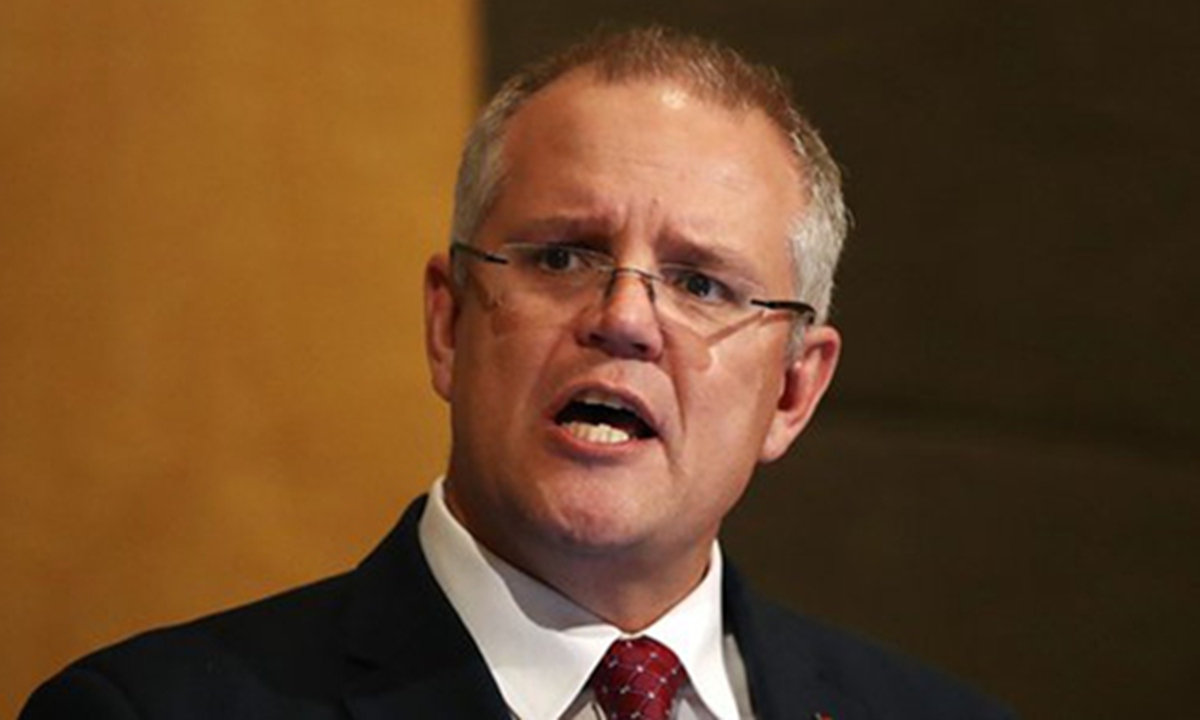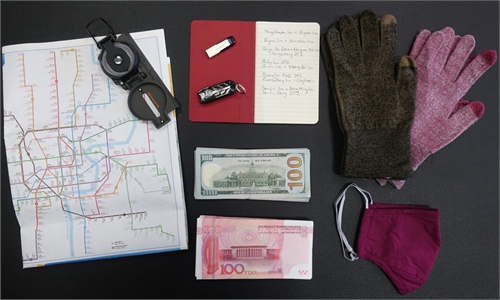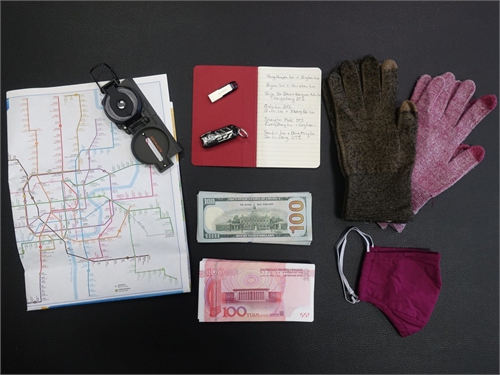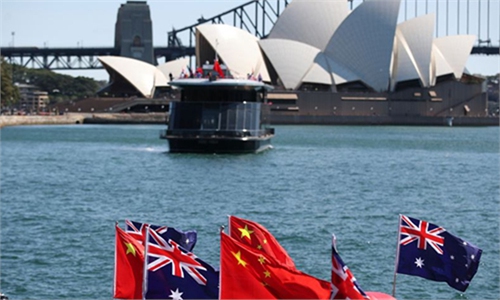
Photo: VCG
Australia announced Tuesday to invest A$1.35 billion ($930 million) over the next decade to enhance cybersecurity capabilities and assistance through the Australian Signals Directorate and the Australian Cyber Security Centre.
Australian Prime Minister Scott Morrison said in early June that his country was under cyberattacks from a sophisticated "state-based" hacker. But he didn't blame any specific country for the activity. Nonetheless, Australian authorities believe China is responsible, according to ABC News. This is obviously far-fetched.
Some anti-China individuals and media outlets in Australia are fond of forging eye-catching theories that China is threatening their security. Yet they cannot provide any convincing evidence. The so-called evidence of the "self-confessed Chinese spy" who made headlines from late 2019 to early 2020 finally turned out to be a bizarre farce directed by Australian media.
In the eyes of Australia and other Western countries, intelligence activities are necessary and every one of these countries is engaging in such activities — including spying on their allies. If espionage is found between countries with good relations, the ones involved would have at least a tacit understanding and address the case behind closed doors. But in cases involving countries with sensitive relations, they love to hype up the reports like carnival barkers.
Take Australia for instance. It on one hand steals information and data from other countries, jeopardizing others' sovereignty and security, while on the other playing the part of the victim by staging a farcical drama in which a thief yells "stop thief."
In 1995, the ABC and the Sydney Morning Herald exposed that the Australian Secret Intelligence Service, along with the help of 30 US National Security Agency technicians, bugged the then newly constructed Chinese Embassy in Canberra in the late 1980s. The elaborate system of fiber optic bugging devices had been covertly installed throughout the embassy during its construction in the late 1980s.
Through this highly sophisticated espionage operation, we can see that Australia holds a clear double standard in terms of national security. It demands absolute security for itself regardless of other countries' practical security concerns.
Given this bugging controversy and the history of the development of China-Australia relations, we can come to an interesting conclusion. That is, when China and the US get along with each other, China-Australia ties also go smoothly. But when the China-US relationship is hit by discord, Canberra will also find fault with Beijing. Therefore, Canberra followed Washington's lead to propose an investigation of China in terms of the origins of the COVID-19 pandemic.
Australia has deep links with the US and it is politically, economically, and militarily dependent on the latter. This determines that Australia is hard to be independent in terms of its policies toward China. It is of Canberra's political needs to keep in line with Washington when dealing with Beijing. Therefore, it is not surprising to see Australia groundlessly accuse China of threatening its cybersecurity.
Frankly speaking, China has been a victim of cyberattacks and espionage and a target of Western countries' infiltration. But China doesn't often openly accuse others of what it has suffered. Instead, Beijing has been calling for global cooperation to safeguard international cybersecurity. Regrettably, China's appeal has never been positively responded or supported by Western countries, including Australia. To some extent from this perspective, this scenario has proved the hypocrisy of the West's claim to maintain cybersecurity.
The article was compiled by Global Times reporter Xu Hailin based on an interview with Yu Lei, a chief research fellow at the Research Center for Pacific Island Countries, Liaocheng University. opinion@globaltimes.com.cn



